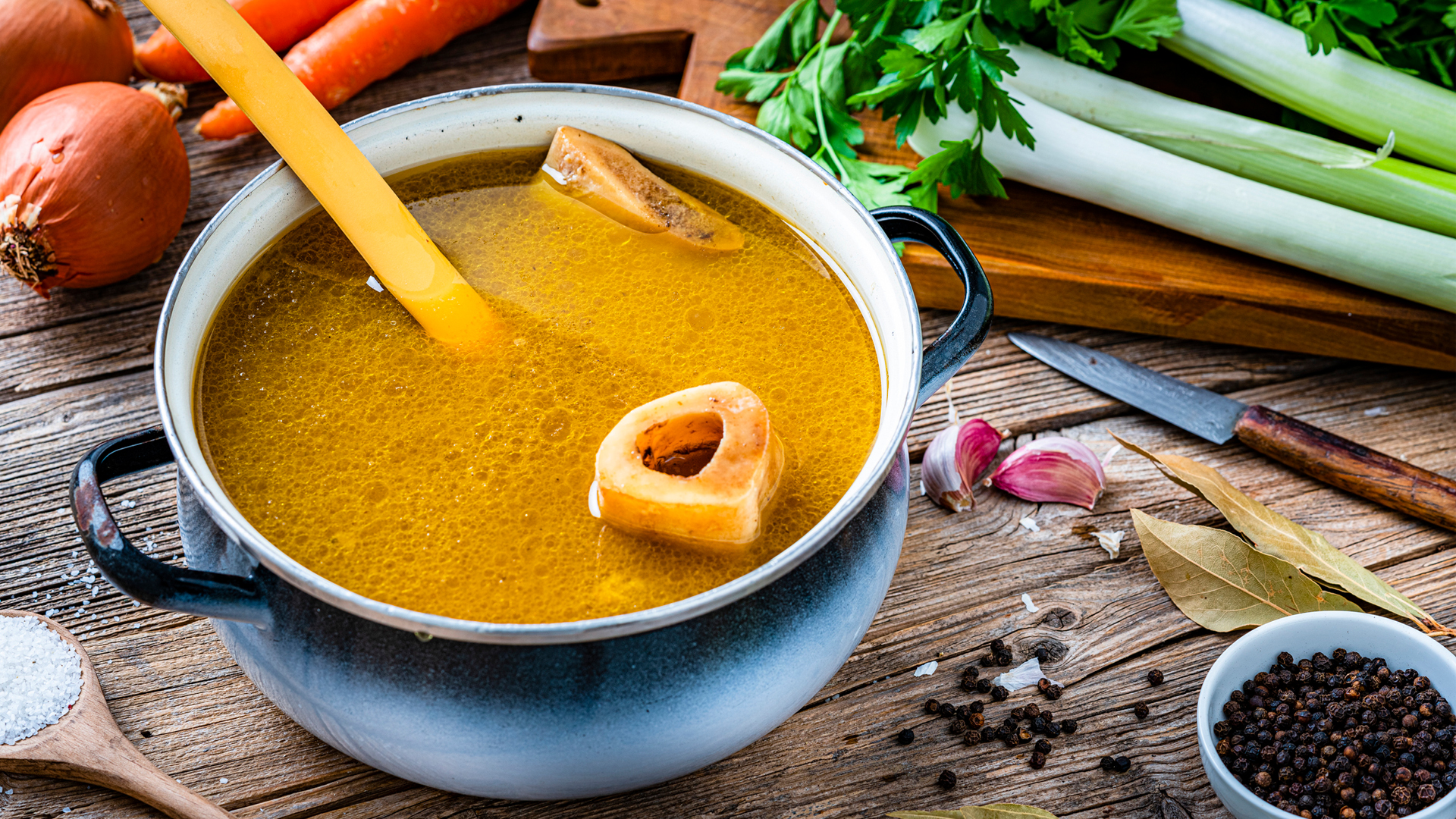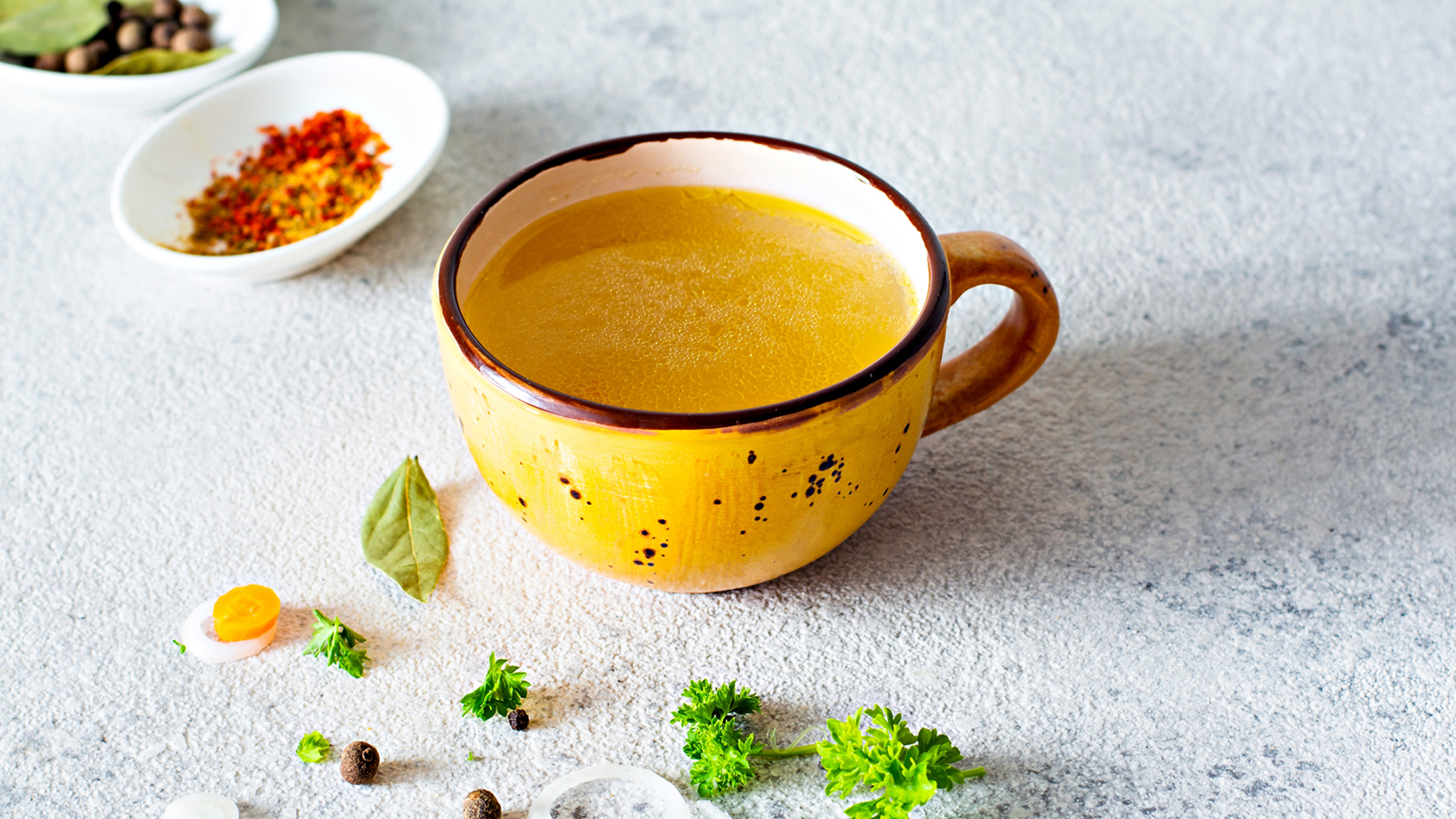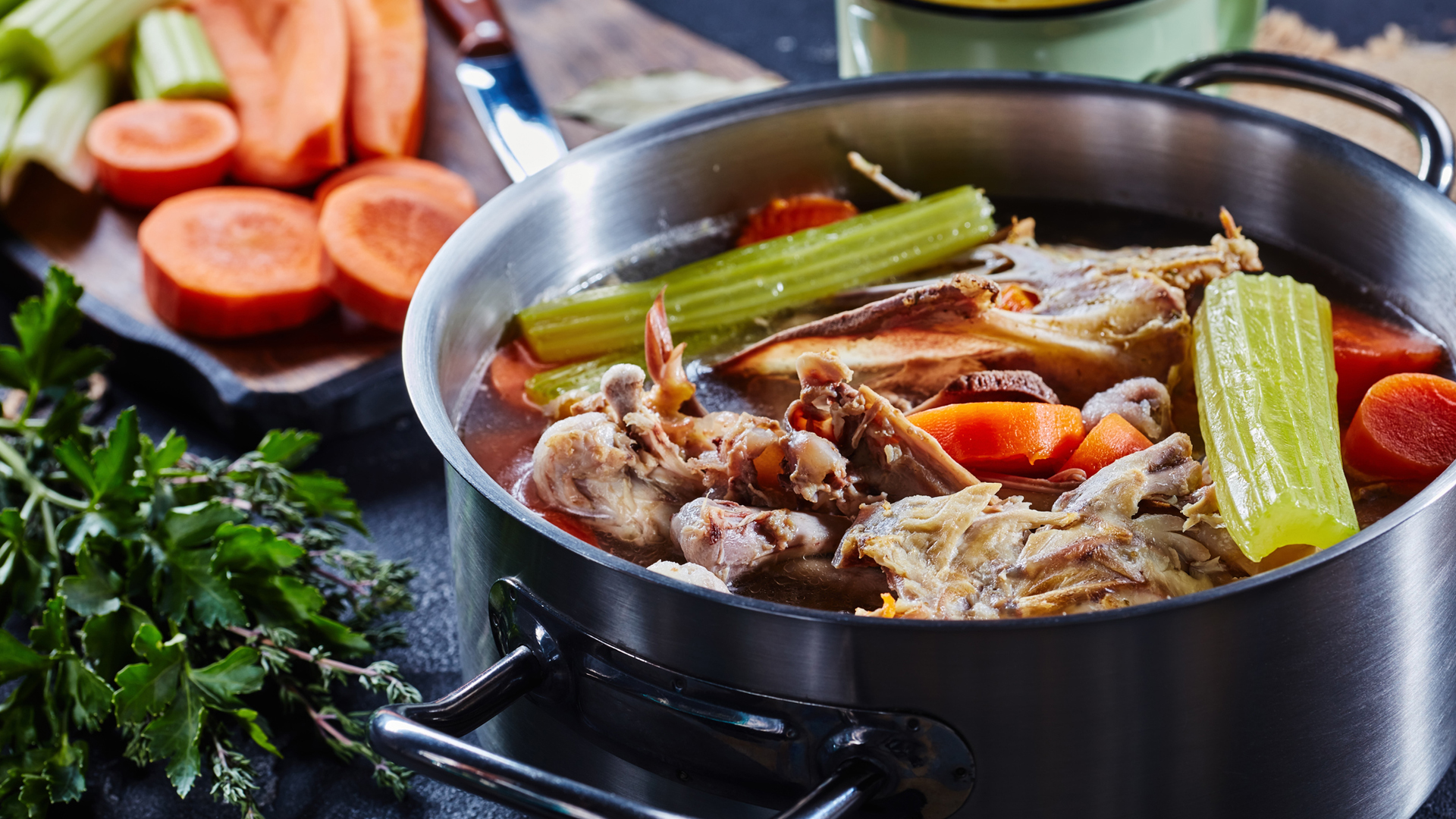Is bone broth good for you?
It’s seen a resurgence in recent years — but is bone broth good for you? We've dug into the research to find out

Get the world’s most fascinating discoveries delivered straight to your inbox.
You are now subscribed
Your newsletter sign-up was successful
Want to add more newsletters?

Delivered Daily
Daily Newsletter
Sign up for the latest discoveries, groundbreaking research and fascinating breakthroughs that impact you and the wider world direct to your inbox.

Once a week
Life's Little Mysteries
Feed your curiosity with an exclusive mystery every week, solved with science and delivered direct to your inbox before it's seen anywhere else.

Once a week
How It Works
Sign up to our free science & technology newsletter for your weekly fix of fascinating articles, quick quizzes, amazing images, and more

Delivered daily
Space.com Newsletter
Breaking space news, the latest updates on rocket launches, skywatching events and more!

Once a month
Watch This Space
Sign up to our monthly entertainment newsletter to keep up with all our coverage of the latest sci-fi and space movies, tv shows, games and books.

Once a week
Night Sky This Week
Discover this week's must-see night sky events, moon phases, and stunning astrophotos. Sign up for our skywatching newsletter and explore the universe with us!
Join the club
Get full access to premium articles, exclusive features and a growing list of member rewards.
Bone broth has been used in cooking for centuries, and is made by boiling bones and the connective tissues of animals in water for a long time — but is bone broth good for you?
According to research published in the Food & Nutrition Research Journal, the broth that’s left behind contains a number of nutrients, including protein, calcium and collagen. These nutrients can have beneficial effects on your skin, bones and overall health and wellbeing. However, before you decide to savor this liquid, are there factors to weigh up first?
To find out, we spoke to Grace Derocha, a registered dietitian nutritionist and national spokesperson for the Academy of Nutrition and Dietetics. We also turned to science to see what the latest research had to say.
What is bone broth?
Bone broth is a liquid made from simmering animal bones, meaty joints and connective tissues in water for hours until it breaks down. The liquid that remains can be used in stews, soups, gravies or enjoyed by itself.
Some research dates bone broth back to the 17th century, but its resurgence has seen health aficionados drinking it for its nutritional benefits more so than its ability to add culinary excellence to a dish. Some believe the rise in popularity of bone broth could be down to the Paleo diet.
Is bone broth good for you?
According to Derocha, yes, bone broth is good for you — and it’s for a number of reasons.

Derocha is a registered dietitian nutritionist at Marquee Health and owns a private practice providing nutrition counseling and health coaching. She earned Bachelor’s degrees in dietetics and psychology from Michigan State University and a Master’s degree from Wayne State University.
It's packed with nutrients
“Animal bones are rich in calcium, magnesium, potassium, phosphorus and other trace minerals – the same minerals needed to build and strengthen your own bones,” says Derocha.
Get the world’s most fascinating discoveries delivered straight to your inbox.
She adds that the connective tissue that’s contained in bone broth provides the liquid with two natural compounds that are known to support joint health: this includes glucosamine and chondroitin. The marrow element provides vitamin A, vitamin K2, minerals like zinc, iron, boron, manganese and selenium, as well as omega-3 and omega-6 fatty acids.
But even if you’re a pescatarian and drink broth made from fish bones, you can still reap the rewards. According to Derocha, fish broth contains iodine, which she says is critical to a “healthy thyroid function and metabolism”.
“All of these animal parts also contain the protein collagen,” adds Derocha. “This turns into gelatin when cooked and yields several important amino acids.”

It's a source of protein
Along with nuts, legumes and meat, the macronutrient protein can also be found in bone broth. But why is this a good thing?
“The protein content in bone broth may support your body as it builds bones, muscles, cartilage, skin, and blood,” says Derocha.
If you’re making bone broth yourself, it can be hard to tell how much protein is in each serving, especially because “every batch of bones is so different”, says Derocha. However, one cup of beef bone broth contains around 5g of protein — this isn’t bad considering the Dietary Guidelines for Americans puts the average recommended dietary allowance (RDA) of protein intake at 0.8g of protein per kilogram of body weight.
It can benefit your digestive health
Gut health is trending right now in the wellness world. And, according to Derocha, bone broth could help you achieve a healthier gut. But how?
“Research has shown that our overall health is impacted greatly by the good health of our intestinal tract,” says Derocha. “Bone broth is easy to digest and may aid in the overall digestion of foods. The gelatin found in bone broth naturally attracts and holds liquids. When this gelatin binds to water in the gut, it helps it move through the intestinal tract more easily.
“Glutamine, which is an amino acid in gelatin, helps to maintain the function of the intestinal wall and has been known to prevent and heal ‘leaky gut’. Leaky gut leads to inflammation as well. Hence why drinking bone broth may benefit those with leaky gut, irritable bowel syndrome and inflammatory bowel diseases, like Crohn’s disease.”

It could help aid sleep
The amino acids in bone broth could also support better sleep. At least that’s according to research published in the Neuropsychopharmacology journal. Researchers said that the amino acid glycine has long been known as an “inhibitory neurotransmitter in the brainstem and spinal cord” and can trigger “muscle atonia during rapid eye movement sleep”. Researchers found that glycine therefore provides a “therapeutic option for improving sleep quality”.
It may support your health
Joint health is another area in which bone broth could be beneficial. In fact, according to a research paper published in the Nutrition Journal – which tasked those with knee osteoarthritis to drink chicken broth – it showed positive results. Along with reducing stiffness and pain, those who digested the broth saw an improvement in joint function.
Is bone broth safe for everyone?
While bone broth has its positives, there are two particular factors to highlight. Derocha says that, according to some studies, bone broth may be high in glutamate. “Glutamate may cause adverse effects, such as anxiety, restlessness, low energy, mental exhaustion, sleeplessness and concentration problems, although there is no scientific evidence to prove this,” she says. “Therefore, those with a glutamic acid sensitivity should be aware that bone broth may not be the best for them.”
Plus, as published in a study in Medical Hypotheses, when bone broth is cooked, lead may be released. Researchers said: “Bones are known to sequester the heavy metal lead, contamination with which is widespread throughout the modern environment. Such sequestered lead can then be mobilized from the bones. We therefore hypothesized that bone broth might carry a risk of being contaminated with lead.”
Which is why, if you are going to add bone broth into your diet, researchers recommend: “Doctors and nutritionists take the risk of lead contamination into consideration when advising patients about bone broth diets.”
This article is for informational purposes only and is not meant to offer medical advice.
Becks is a freelance journalist and writer writing for a range of titles including Stylist, The Independent and LiveScience covering lifestyle topics such as health and fitness, homes and food. She also ghostwrites for a number of Physiotherapists and Osteopaths. When she’s not reading or writing, you’ll find her in the gym, learning new techniques and perfecting her form.
 Live Science Plus
Live Science Plus











